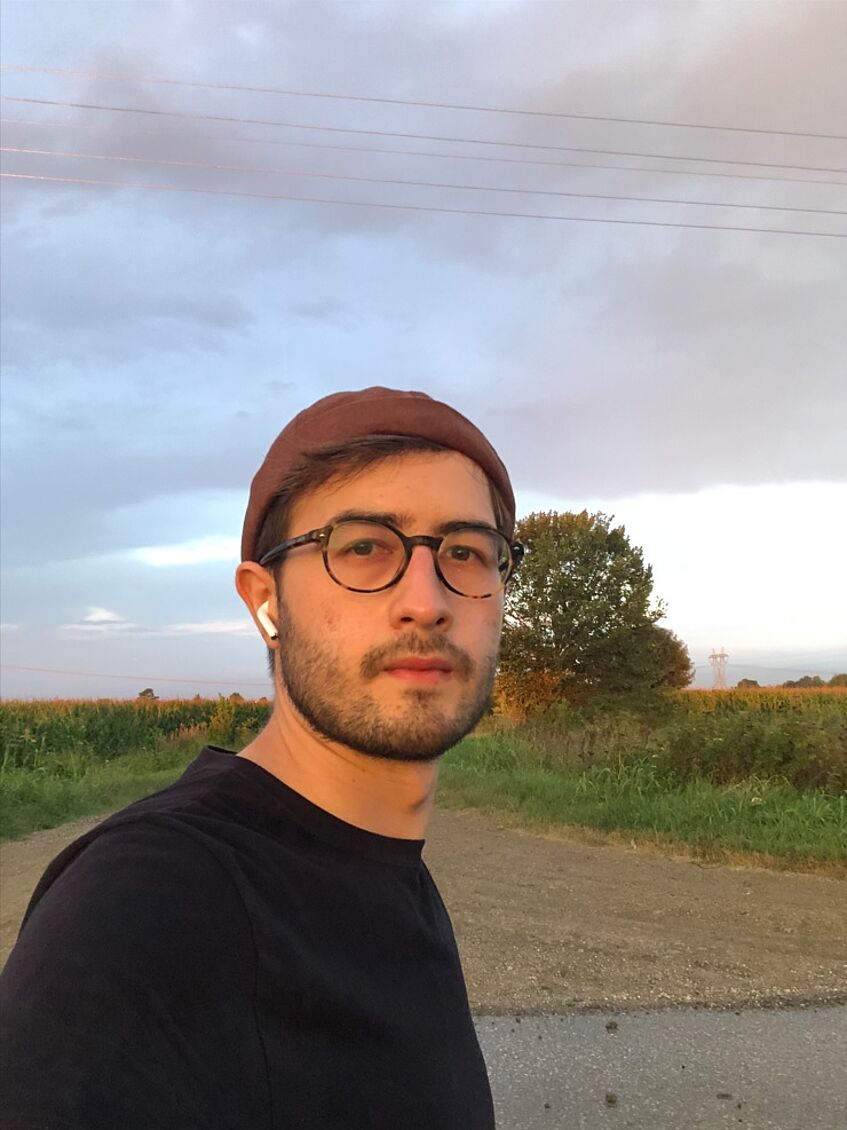Interview with Alperen Arslan (MA) (Andreas Tietze Fellow 2022)

Interview with Alperen Arslan (MA) (Andreas Tietze Fellow 2022)
Would you briefly introduce yourself?
Trained as a historian at Boğaziçi University, SOAS University of London, and the Central Euro-pean University in Vienna, I specialize in the history of science and environmental history in the context of the Ottoman, Habsburg, and Russian Empires as well as their ensuing states. In my award-winning Master’s Thesis titled “Measuring Empire: The Emergence of Climate Science in the Ottoman Empire,” I explored how and why the global study of climatology flourished in the Ottoman Empire and became a mutually reinforcing metaphor for the rational order of nineteenth-century Ottoman society.
My research interests include social and environmental histories of energy; the production and dissemination of multivalent forms of -scientific- knowledge (Wissenschaft und Kunde) in the context of the continental empires; intellectual history of the Ottoman Empire and Central Eu-rope; science and public opinion in general.
What are you currently working on?
More recently, I have been reflecting on the newly emerging disciplines in the earth sciences —geology, geochemistry, paleontology, geography, chemistry, and cartography— in Western Eura-sian Empires. In doing so, I examine how an international community of scientists that moved across empires and interacted with their colleagues and local populations played a role in the stra-tegic environmental policies of the Ottoman, Habsburg, and Russian Empires in the age of the mineral energy economy. Therefore, in my work, I will explore: what were the political, econom-ic, and moral motivations of the scientists to conceive imperial spaces as objects of scientific in-quiry; what did making imperial space legible and governable mean for the imperial scientists from disparate ethnic and social backgrounds; and how their renderings of the planet changed people’s perception of environments as well as the imperial space itself.
I am comparatively reading scientists like Ferdinand von Hochstetter, Halil Edhem, and Aleksandr Fersman, whose monographs and textbooks (e.g., Allgemeine Erdkunde; İlm-i Meʿādin ve Ṭabaḳāt'ul Arż; Zanimatel’naia Mineralogiia- Mineralogy for Everyone) are located in Vienna and Istanbul. By reading these and many other overlooked monographs and textbooks, I also aim to build a meaningful historical narrative between today’s planetary crisis and its imperial origins in the context of the continental empires.
Why did you apply to the Andreas Tietze Memorial Fellowship?
I work on the trans-imperial histories of shared scientific knowledge production among Ottoman, Habsburg, and Russian scientists. So, some of my sources are located in several archives across Austria. Indeed, Andreas- Tietze Fellowship was a great opportunity to explore these sources and develop a research project. Secondly, the vibrant intellectual atmosphere of the Department of Near Eastern Studies was another motivating force to apply for this Fellowship.
How did the fellowship contribute to your research?
During my stay as a fellow, I have had the chance to explore scientific treatises, journals of learned societies, and government correspondence in fields ranging from experimental chemistry, geology, paleontology, and mineralogy, to subterranean cartography, all of which are located in the splendid archives of the Austrian Academy of Sciences, the Austrian National Library, and so on. It was an amazing opportunity to access these sources easily and work on them. This research, of course, would not have been possible without the help of Professor Yavuz Köse and Dr. Onur İnal. They helped me logistically and fostered my research with their invaluable suggestions. Likewise, as someone who intends to challenge the received narratives about certain ways of knowing from Europe to the rest of the world, I tremendously benefited from my other colleagues who specialize in diverse histories of science in the context of the Habsburg and Russian Empires.
Do you want to publish your research or present it to academic community? How will it go further?
Yes, we are currently working on my exposé with Professor Yavuz Köse. It will be an important part of my Ph.D. Thesis. In the meantime, I, of course, intend to present my work to the academic community.
Last but not least, I am grateful to Professors Yavuz Köse and Onur İnal as well as other benevo-lent colleagues at the Department of Near Eastern Studies who made me feel at home throughout my Fellowship.
